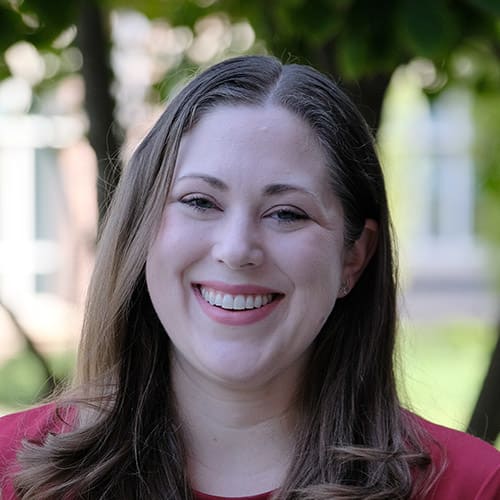
Religious Assisted Living: What to Look for and Where to Find It

Faith and spirituality can inspire, bring joy, encourage relationships, and build resiliency. With the majority of adults 65+ saying in a recent Pew Research Center survey that religion is very important in their lives, it’s no wonder that there are plenty of communities offering assisted living in a faith-based environment. Living in a religious community can make it easy for your loved one to continue living their spiritual life while receiving the vital support they require.
Is assisted living the right fit?
Let our free assessment guide you to the best senior living options, tailored to your needs.
Key Takeaways
- Religious assisted living usually features a faith-based senior care atmosphere. Communities may center activities and community culture on the beliefs and values of a specific religion or denomination.
- Religious and spirituality activities offer benefits for older adults. These activities may reduce social isolation, slow cognitive decline, and increase quality of life.
- Religious communities provide specialized amenities and services. Some examples include on-site religious leaders, worship services, religious celebrations, and dedicated spaces for prayer.
- Look for assisted living that fits your loved one’s unique spirituality. Take into consideration each community’s beliefs, spiritual enrichment opportunities, and religious leadership.
What is religious assisted living?
Religious assisted living is a type of faith-based community that typically cares for residents’ mental, emotional, physical, and spiritual wellness. As with any type of assisted living, staff support the residents’ personal care needs and help with activities of daily living.
These communities make it potentially easier for an older adult to access spiritual enrichment opportunities on a regular basis by having resources on-site or nearby.
Benefits of religious assisted living
Research surrounding age-related issues such as isolation and cognitive decline suggests that seniors may benefit from religious assisted living in the following ways.
Added social support
Religious and spiritual activities can help older adults build a social network. Loneliness and isolation can have negative health impacts for this population. For many seniors in the U.S., their religious community makes up their largest social support besides their own family.[01]
Slowed or delayed cognitive decline
Involvement in religious and spiritual pursuits appears to prevent or delay cognitive decline, especially in middle-age and older adults, according to recent studies.[02]
Increased resiliency, purpose, and quality of life
Several studies have noted that religion and spirituality can factor into a person’s overall quality of life. Religion can help older adults overcome adversity as they age. It can help them combat stress and deal with the effects of illness, limited financial resources, and the loss of a lifelong partner.[03]
In fact, “many older people report that religion is the most important factor enabling them to cope with physical health problems and life stresses,” according to the Merck Manual, a leading medical information resource for medical professionals.[01]

Is assisted living the right fit?
Let our free assessment guide you to the best senior living options, tailored to your needs.
How do religious assisted living communities operate?
Religious assisted living communities offer very similar care services as those found in nonreligious assisted living communities, but religious communities place a special emphasis on faith-based activities and spiritual wellness.
Many religious assisted living communities function as nonprofit or not-for-profit organizations. This is in stark contrast to standard assisted living communities, which typically are for-profit.
Communities operated by nonprofits try to raise money through their organization’s activities and have a special tax-exempt status. Nonprofits usually have a specific cause or somehow contribute to the well-being of society.
Meanwhile, not-for-profits generally try to cover the cost of their organization’s operations. They have to seek tax-exempt status because they are not automatically tax-exempt upon their formation.[04]
Unlike for-profit communities, nonprofits are typically lead by a board of directors, which are composed of senior living professionals, religious clergy members, health experts, and nonprofit professionals. Not-for-profits are likely to be led by a religious clergy, senior living professionals, or nonprofit professionals.
Costs for religious assisted living
Very limited information exists on the pricing of religious assisted living. The cost of religious assisted living communities may vary based on location, amenities, community size, services provided, nonprofit or not-for-profit status, and more.
For reference, the median assisted living community in the U.S. was priced at $4,500 a month as of 2021, according to the Genworth Cost of Care Survey.[05]

Assisted living questions? Get expert help
Tell us your care needs to receive personalized guidance from our advisors.
Religious assisted living communities’ amenities and services
These types of communities typically offer a tailored experience for those of a specific faith or spiritual background. The following spiritual activities, amenities, and services may be offered by these communities:
- An on-site dedicated space for religious services or activities
- An on-site religious leader
- On-site worship, prayer, or religious services
- Religious services, podcast, or other audio materials available through Alexa-enabled devices
- On-site spiritual enrichment activities
- Religious-based counseling
- In-room religious or spiritual support or prayer
- Religious reading materials, such as a Torah or Quran
- Essential religious items, such as prayer mats or candles
- Religious holiday celebrations
- Faith-based guidelines for caregivers and staff
What are the types of religious assisted living?
Religious assisted living communities can be affiliated with, sponsored by, or connected to a variety of religions in the U.S. The following types account for some of the most popular religions in the country:
- Buddhist assisted living. This type of community centers around the practices of Buddhism. You may see a community with a meditation hall, Zen Buddhist teachers on-site, and a mutual care philosophy. Buddhist assisted living may be located near a Buddhist center for easy access to religious activities.
- Catholic assisted living.Based around Catholicism, this type of community may feature a chapel with daily mass and Catholic holiday celebrations throughout the year.
- Christian assisted living. This variety of assisted living community can encompass both Protestant and Catholic faiths. Some communities may be nondenominational or may focus on a specific denomination, such as Anglican, Episcopalian, or Methodist. Christian values and beliefs likely play a big part in community life.
- Hindu assisted living. While this type of religious community is relatively limited in the U.S., you may find Hindu assisted living near a Hindu temple. These communities may be integrated with multicultural Asian assisted living communities.
- Jewish assisted living. Communities focused on Jewish assisted living may feature kosher meals, Shabbat celebrations, and an on-site Rabbi.
- Lutheran assisted living. As a type of Protestant assisted living, this type of community typically offers church services, Bible study groups, and faith-based volunteer opportunities that align with Lutheran beliefs.
- Mormon assisted living. While adherents to the Church of Latter Day Saints may own and operate assisted living communities near temples and large populations of Mormons, assisted living geared toward Mormons specifically remains exceedingly rare.
- Muslim assisted living. This is another type of community that remains rare in the U.S. Placing a loved one in care outside the home may be seen as unacceptable by some adherents of Islam. Communities designed for Muslim assisted living may feature halal food, a prayer room, and Farsi-, Urdu-, or Arabic-speaking staff members. They may be located within walking distance of mosques.
- Protestant assisted living. This type of assisted living community follows the beliefs, values, and traditions that are common to Protestant Christian denominations, such as Lutheran, Baptist, and Adventist.
- Presbyterian assisted living. These communities follow the values, beliefs, and traditions of the Presbyterian denomination. They may have on-site worship services, an on-site clergy member, and faith-based activities for residents.
Does someone have to be a religious or spiritual to live in religious assisted living?
No. There’s no requirement for you to be a member of a specific religion to live in a religious assisted living community. The Fair Housing Act prohibits discrimination by religion when it comes to the selling or renting of a dwelling.[06]
What to look for in a religious assisted living community
When you’re considering a religious assisted living community, it’s important to consider what kind of religious and spiritual experience your loved one is looking for on a day-to-day basis. You can look at the following foundational areas to help determine a good fit for your loved one:
- Beliefs, values, and traditions. Do the community’s religious and spiritual values and beliefs align with your loved one’s values and beliefs?
- Engagement and involvement. Are the spiritual enrichment opportunities ones that your loved one would enjoy participating in? Are they scheduled regularly?
- Fellowship and companionship. Does the community feel like a welcoming space for your loved one’s spiritual journey? Are residents and staff friendly and warm?
- Faith leadership. If the community has an on-site religious leader, try to schedule a one-on-one meeting with them. Does your loved one feel they can connect with this individual? Does the religious leader appear supportive?
- Learning and growth. Are there religious texts available for study? Are there groups in the community to discuss these texts or the overall religion?
- Worship style. Try to attend a service, sermon, or prayer session in the community. Does it match your loved one’s preferred worship style or method? Do they find the messaging pleasing or uplifting?
How to find religious assisted living
Finding the right fit for your loved one can be a challenge when it comes to religious assisted living. You want a community where your loved one feels welcome and can be supported in their spiritual wellness. However, you don’t have to walk this journey alone.
A Place for Mom’s Senior Living Advisors can also help you locate an assisted living community that meets your loved one’s unique spiritual needs. As senior living experts, they can lend a helping hand by narrowing down community options or even setting up community tours for you.
What families are saying about assisted living facilities
Assisted living reviews from residents and families
Lehigh Acres Assisted Living
Capitol Hill Senior Living
Key Takeaways
Kaplan, D. B. & Berkman, B. J. (2022, September). Religion and spirituality in older adults. Merck Manual Professional Version.
[2] Hosseini, S., Chaurasia, A., & Oremus M. (2019, March 14). The effect of religion and spirituality on cognitive function: A systematic review. Gerontologist.
[3] Amir, S. N., Juliana, N., Azmani, S., Abu, I. F., Talib, A. H. Q. A., Abdullah, F., Salehuddin, I. Z., Teng, N. I. M. F., Amin, N. A., Azmi, N. A. S. M., & Aziz, N. A. S. A. (2021, September 18). Impact of religious activities on quality of life and cognitive function among elderly. Journal of Religion and Health.
[4] Heaslip, E. (2021, April 20). Nonprofit vs. not-for-profit vs. for-profit: What’s the difference? U.S. Chamber of Commerce.
[5] Genworth. (2021). Cost of care survey.
[6] U.S. Department of Justice. (2022, May 31). The fair housing act.
Assisted living in all states
The information contained on this page is for informational purposes only and is not intended to constitute medical, legal or financial advice or create a professional relationship between A Place for Mom and the reader. Always seek the advice of your health care provider, attorney or financial advisor with respect to any particular matter, and do not act or refrain from acting on the basis of anything you have read on this site. Links to third-party websites are only for the convenience of the reader; A Place for Mom does not endorse the contents of the third-party sites.
Assisted Living options tailored to your needs
Assisted Living options tailored to your needs